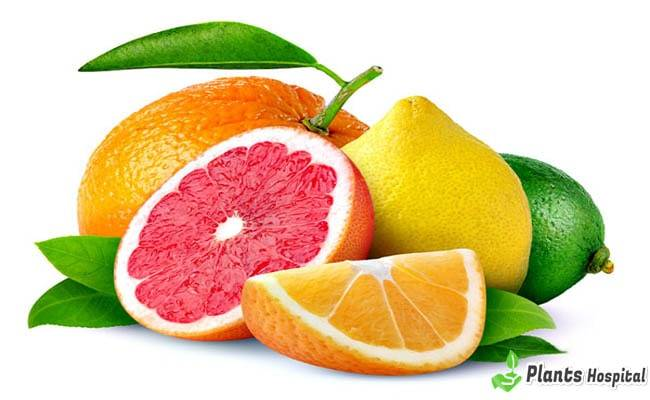Citrus fruits have increasingly come into the spotlight as a potential aid for mental health, particularly in combating depression. Research indicates that regularly consuming citrus for depression can significantly decrease the risk of developing this debilitating condition, with findings suggesting a 20% reduction linked to the daily enjoyment of oranges. This intriguing connection may stem from the role of citrus in promoting the growth of beneficial gut bacteria, specifically Faecalibacterium prausnitzii, which is crucial in the production of serotonin—often referred to as the ‘happiness hormone.’ By integrating citrus into a mental health diet, individuals can potentially harness the benefits of these vibrant fruits, contributing to their overall well-being. Incorporating these depression prevention foods into daily meals can offer a natural, enjoyable approach to enhancing mood and fostering better mental health.
The relationship between citrus and emotional resilience is increasingly recognized, spotlighting the nutritional benefits of these zesty fruits. Terms such as “mental wellness diet” and “foods for mood enhancement” are gaining traction as more individuals seek natural solutions to combat feelings of sadness and anxiety. Citrus fruits, celebrated for their vitamin C content and refreshing flavors, may play a pivotal role in nurturing a strong gut-brain connection, essential for achieving optimal mental clarity. As more studies unveil the links between our dietary choices and brain health, the concept of incorporating foods like oranges for their serotonin-boosting properties becomes crucial for those aiming to enhance their emotional stability. Whether it’s through juicing, snacking, or adding them to meals, embracing citrus can be a delightful step toward improved mental health.
The Power of Citrus Fruits for Mental Health
Citrus fruits, such as oranges and lemons, are not only refreshing but also carry significant benefits for mental health. Recent studies indicate that these fruits can play a role in reducing the risk of depression, particularly through their unique nutritional profiles. Rich in vitamin C, antioxidants, and fiber, citrus fruits have been shown to promote a healthier gut microbiome, which is increasingly recognized as essential for mental well-being. The presence of key compounds in citrus can positively affect neurotransmitter levels, particularly serotonin, which is known to enhance mood and alleviate symptoms of depression.
In addition to their direct benefits on mood, citrus fruits contribute to a balanced mental health diet that may include a variety of other depression prevention foods. By incorporating a regular intake of citrus into our diets, we can leverage the gut-brain connection to support not only physical health but also emotional resilience. More research is needed to fully understand how specific components of citrus influence mental health, but the initial findings are profound and encourage a dietary shift towards incorporating these bright, vibrant fruits.
Exploring the Gut-Brain Connection
The gut-brain connection is a pivotal area of research in understanding mental health, with emerging evidence suggesting that gut bacteria can significantly affect our mood and behavior. Citrus fruits, specifically, have been linked to the growth of beneficial gut bacteria such as Faecalibacterium prausnitzii, which is believed to play a role in producing neurotransmitters like serotonin and dopamine. These neurotransmitters are crucial for mood regulation, and their levels can influence feelings of anxiety and depression. The interplay between gut health and mental stability highlights the importance of a diet rich in citrus fruits for maintaining mental wellness.
As we delve deeper into the gut-brain axis, it’s clear that what we eat can have profound implications on our mental health. Studies within large cohorts, such as the Nurses’ Health Study II, emphasize that specific dietary patterns, particularly those including citrus, may correlate with lower incidences of depression. This relationship suggests that individuals looking to enhance their mental health may find a potent ally in citrus fruits, demonstrating the need for a holistic approach to dietary recommendations aimed at improving mental health.
The Role of Serotonin and Citrus in Mood Enhancement
Serotonin, often referred to as the ‘feel-good’ neurotransmitter, plays a vital role in maintaining mood stability and overall mental wellness. Recent findings indicate that the consumption of citrus fruits may enhance serotonin levels in the brain, thereby serving as a natural strategy for mood enhancement and depression prevention. The unique nutrients found in oranges and other citrus fruits can stimulate the production of serotonin, creating a supportive environment for better mental health.
Incorporating citrus into your daily diet can be a simple yet effective way to support serotonin synthesis and combat depressive symptoms. This is particularly beneficial for individuals looking for natural dietary interventions to complement their mental health strategy. As attention grows towards food as medicine, the inclusion of citrus fruits as a standard part of a mental health diet reinforces the connection between nutrition and emotional health.
Citrus Fruits as Depression Prevention Foods
The classification of citrus fruits as depression prevention foods is gaining traction, especially as studies reveal their potential to significantly reduce the risk of developing depressive disorders. Regular consumption of citruses like oranges, grapefruits, and lemons has shown promising associations with lower depression rates. These fruits not only enhance dietary variety but are packed with essential vitamins, minerals, and bioactive compounds that collectively contribute to improved mood and cognitive function.
To effectively harness the benefits of these depression prevention foods, it’s important to incorporate them into a balanced diet. Combining citrus fruits with other mood-boosting foods can create a synergistic effect that maximizes their impact on mental health. For instance, pairing citrus with healthy fats, lean proteins, and whole grains can enhance nutrient absorption and promote a well-rounded diet, ultimately paving the way for better emotional resilience and overall well-being.
Encouraging Dietary Shifts Towards Citrus Consumption
In light of the compelling research linking citrus consumption and mental health, it is essential to encourage broader dietary shifts toward these nutritious fruits. Educating communities about the mental health benefits of citrus can help individuals make more informed choices about their diets. This could involve community workshops highlighting the use of citrus in meals or campaigns promoting the consumption of at least one citrus fruit daily as part of a mental health diet.
Moreover, policymakers and health professionals can advocate for the inclusion of citrus fruits in dietary recommendations for mental health improvement. By prioritizing foods that have a tangible impact on mood, we can take proactive steps toward addressing mental health challenges in a natural and holistic manner. Ultimately, fostering a culture that recognizes the importance of diet can lead to better mental health outcomes and enhanced quality of life.
Benefits of a Mental Health Diet Including Citrus
A mental health diet that incorporates citrus fruits is not only beneficial for mood enhancement but also for overall health. The antioxidants and nutrients found in citrus, such as vitamin C and flavonoids, contribute to combatting oxidative stress and inflammation, which have been implicated in various mental health issues. Regular incorporation of these fruits can provide a natural boost to one’s mental clarity and emotional stability.
Additionally, the benefits of a mental health diet go beyond just fruit consumption; it’s about creating a holistic eating pattern that includes a variety of whole foods, rich in nutrients that support brain health. Citrus fruits serve as a vibrant and refreshing component of this diet, providing essential vitamins while also being enjoyable to consume. Emphasizing a diet focused on mental wellness could play a significant role in not only reducing depression risk but also enhancing everyday emotional resilience.
Potential Clinical Applications of Citrus Research
The implications of research exploring the connections between citrus consumption and mental health could pave the way for innovative clinical applications. If future studies confirm that incorporating citrus fruits into a diet can effectively lower depression risk or even act as an adjunct treatment for individuals already experiencing depression, this could revolutionize how we approach nutritional psychiatry. Such findings would likely encourage healthcare professionals to recommend dietary modifications as part of comprehensive mental health care.
Furthermore, the low-risk nature of dietary interventions offers a promising avenue for individuals seeking alternative or complementary treatments for depression. Citrus fruits are accessible, affordable, and carry minimal side effects, making them an ideal candidate for inclusion in mental health strategies. The evidence supporting the use of food as a therapeutic option underscores the necessity for ongoing research into the specific benefits of various foods on mental health.
The Future of Research in Citrus and Mental Health
As interest in the relationship between diet and mental health continues to grow, the future of citrus research looks promising. Scientists are increasingly recognizing the importance of exploring how dietary choices impact our emotional well-being and how specific foods, like citrus, can be part of effective mental health strategies. There is a significant need for clinical trials to evaluate the long-term effects of citrus consumption on mental health, which could provide definitive insights into the extent to which these fruits can influence mood and cognitive function.
Continued investigation into the gut-brain connection will likely provide researchers with valuable information to guide dietary recommendations for mental health. As we learn more about the complex interactions between the foods we eat, gut health, and mental well-being, we may identify new ways to integrate healthy eating habits into therapeutic practices for those struggling with depression and anxiety.
Citrus as Part of a Comprehensive Wellness Approach
Incorporating citrus fruits into a comprehensive wellness approach can yield substantial benefits. While dietary changes alone may not resolve mental health issues, they can support other health interventions and promote an overall healthier lifestyle. Citrus fruits can be an integral part of a balanced diet that, together with other lifestyle modifications such as regular physical activity, adequate sleep, and stress management, can significantly enhance mental well-being.
By recognizing citrus as a potent ally in achieving mental wellness, individuals can take proactive steps towards improving their emotional health. Simple changes, such as adding a daily orange or lime to meals, can foster a greater awareness of how food choices affect our mental state. This holistic view emphasizes the importance of a synergistic approach to health, where diet, exercise, and mental health care intertwine to create robust emotional resilience.
Frequently Asked Questions
How does citrus consumption benefit mental health and depression prevention?
Citrus fruits, such as oranges, may lower the risk of depression due to their ability to stimulate the growth of beneficial gut bacteria, particularly Faecalibacterium prausnitzii. This specific bacterium is linked to increased levels of neurotransmitters like serotonin and dopamine, which are essential for regulating mood. Including citrus in your diet can therefore play a significant role in a mental health diet aimed at depression prevention.
What is the connection between citrus fruits and serotonin levels?
Citrus fruits have been found to influence the gut-brain connection, leading to an increase in beneficial bacteria that may enhance the production of serotonin, a key neurotransmitter involved in mood regulation. Higher citrus intake is associated with improved levels of serotonin, which can help prevent depression.
Can eating citrus fruits replace traditional antidepressants?
While citrus fruits, especially oranges, have been shown to lower the risk of developing depression, they are not a replacement for traditional antidepressants. Instead, they can complement existing treatments by contributing to a mental health diet. Eating citrus may help in prevention and could be beneficial when combined with other therapeutic approaches.
What role does the gut-brain connection play in citrus consumption and mood regulation?
The gut-brain connection is crucial in understanding how citrus consumption affects mood. Citrus fruits promote the growth of specific gut bacteria like F. prausnitzii, which can influence the production of serotonin and other neurotransmitters. This connection reinforces the idea that a balanced diet, including citrus, can improve mental health by supporting gut health.
Which citrus fruits are best for improving mental health and reducing depression risk?
While all citrus fruits are beneficial, oranges are particularly noted in studies for their role in reducing depression risk. Other citrus fruits like lemons, limes, and grapefruits also provide health benefits due to their vitamin C content and ability to enhance gut microbiome diversity, which may positively affect mental health.
How much citrus should I consume to lower my risk of depression?
Research suggests that eating one medium orange per day may reduce the risk of depression by around 20 percent. Incorporating a variety of citrus fruits into your diet regularly can help maximize their mood-boosting benefits and contribute to a robust mental health diet.
Are there any side effects of consuming citrus for depression prevention?
Citrus fruits are generally safe and offer numerous health benefits, including depression prevention. However, excessive consumption may lead to gastrointestinal discomfort for some individuals due to acidity. It’s always best to enjoy citrus in moderation as part of a balanced diet.
What are other foods that support the gut-brain connection for mental health?
In addition to citrus, foods rich in fiber, probiotics, and omega-3 fatty acids support gut health and, by extension, mental health. These include yogurt, whole grains, nuts, and fatty fish, all of which contribute to a healthy gut microbiome and may help prevent depression.
Is there scientific evidence linking citrus to reduced depression risk?
Yes, recent studies, including those leveraging data from the Nurses’ Health Study II, indicate that increased citrus consumption correlates with lower depression rates. These studies highlight the significant role of the gut microbiome and neurotransmitter production in connecting citrus intake with mental health benefits.
| Key Point | Details |
|---|---|
| Citrus Consumption and Depression | Eating an orange a day may reduce depression risk by 20%. |
| Role of Gut Bacteria | Citrus promotes growth of F. prausnitzii, bacteria associated with better mood. |
| Study Background | Based on the Nurses’ Health Study II involving over 100,000 women. |
| Research Findings | Specific to citrus; no significant link with other fruits like apples or bananas. |
| Gut-Brain Connection | F. prausnitzii influences serotonin and dopamine levels, affecting mood. |
| Future Research | More studies needed to confirm results and understand mechanisms. |
Summary
Citrus for depression is an emerging area of research suggesting that consuming citrus fruits, such as oranges, could significantly lower the risk of developing depression. A recent study highlights that eating just one medium orange daily may reduce depression risk by approximately 20%. This benefit is attributed to citrus’s ability to promote beneficial gut bacteria, specifically F. prausnitzii, which enhances the production of mood-regulating neurotransmitters like serotonin and dopamine. As the connection between diet and mental health becomes clearer, further studies may validate the role of citrus in both preventing and alleviating depression.



